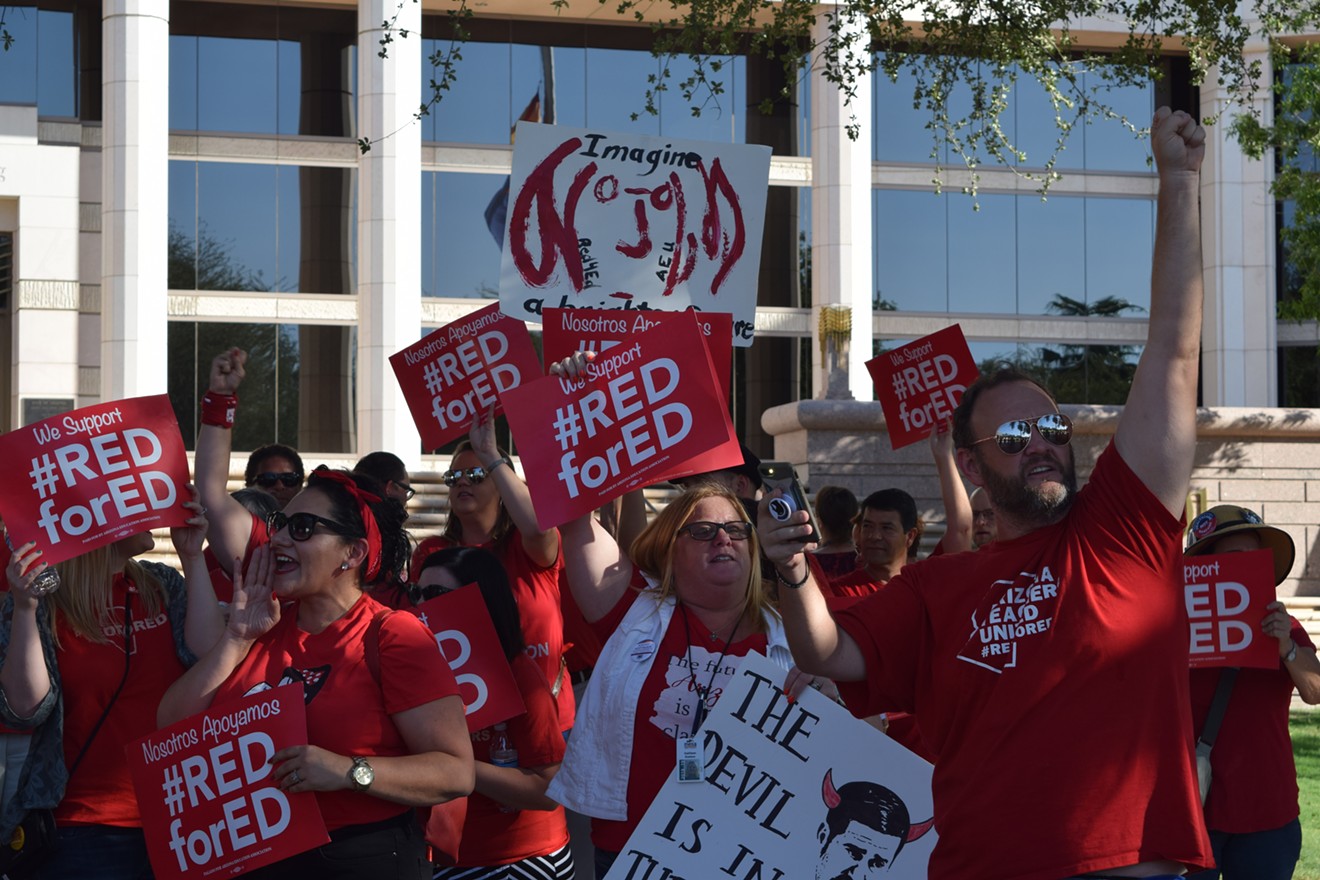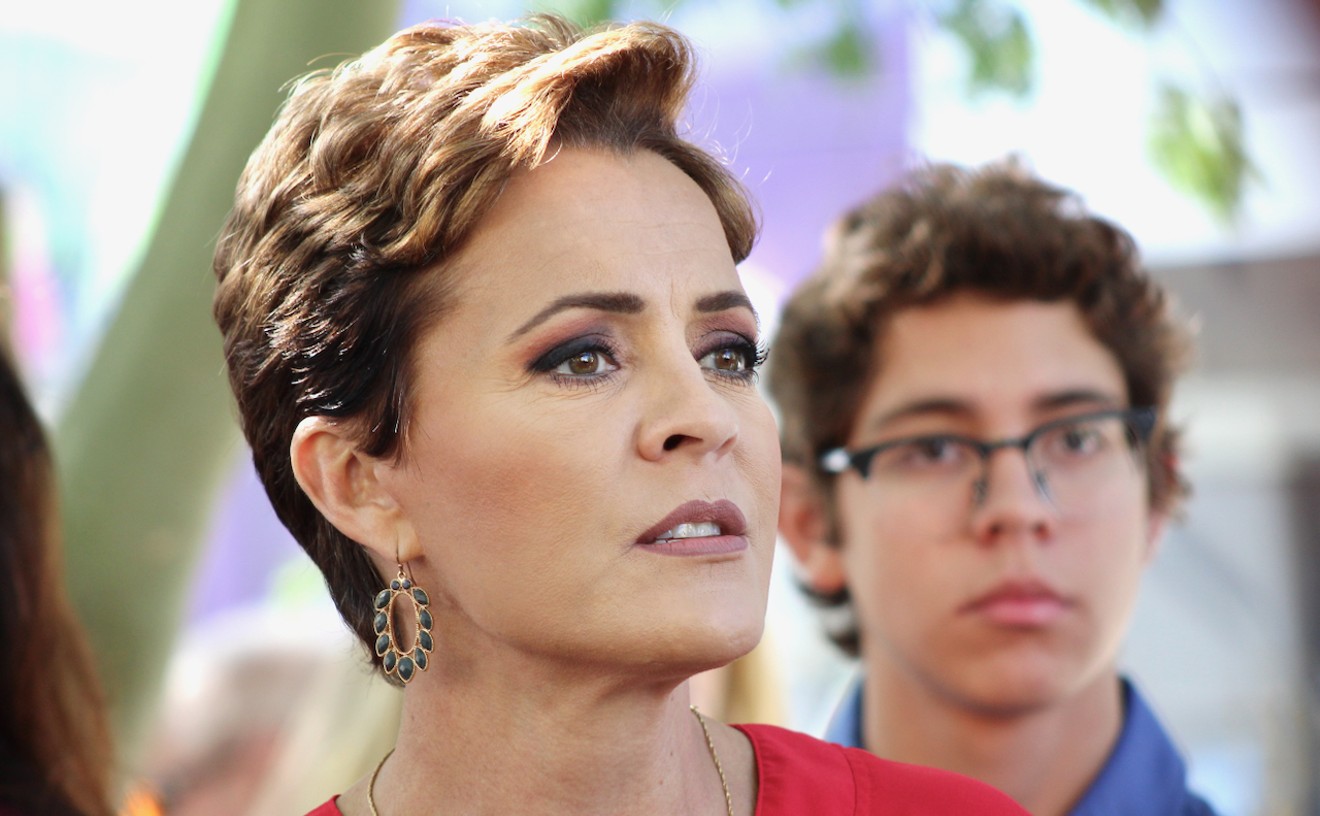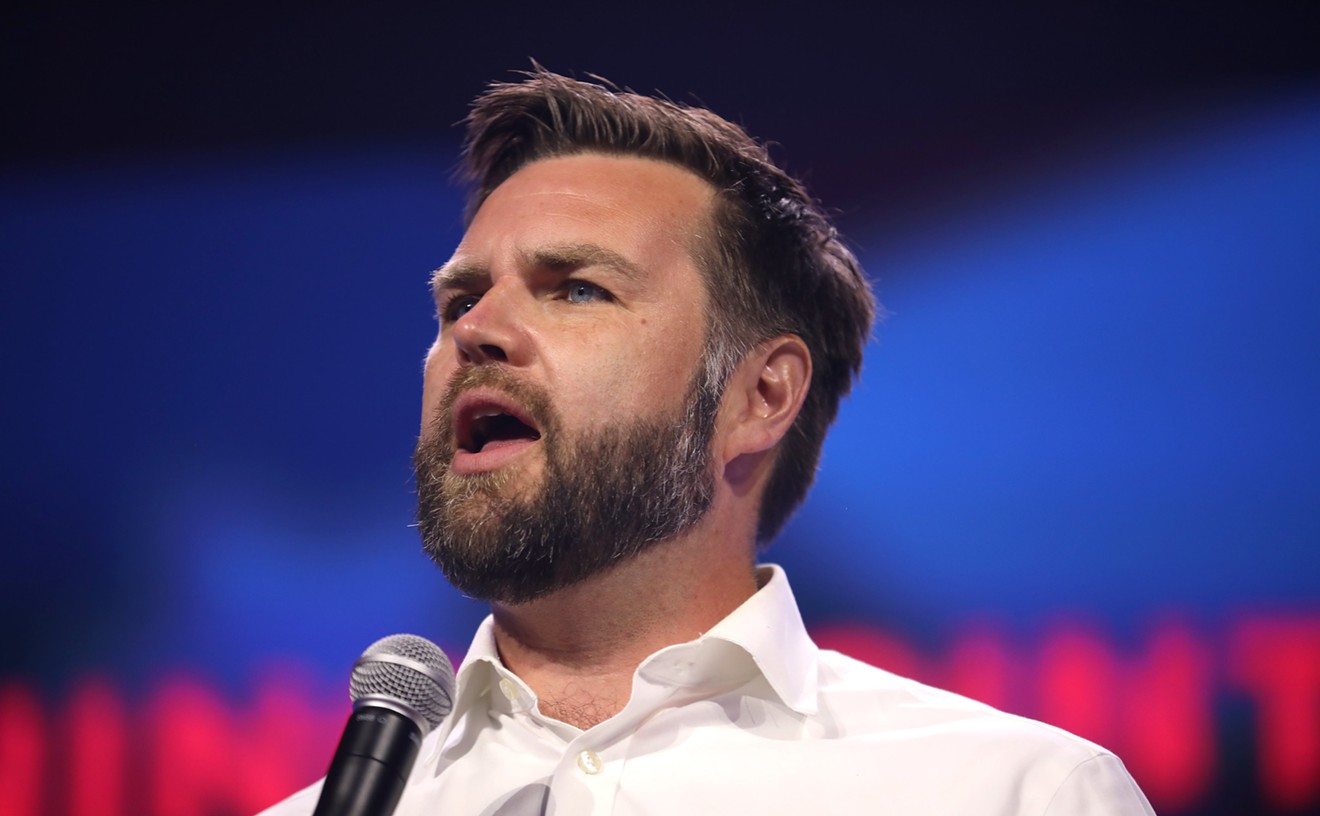Despite an investigation, the Arizona Supreme Court could find no evidence for a suspected leak of the vote breakdown in the controversial decision on the Invest in Education Act.
Arizona Governor Doug Ducey's re-election campaign staff, as well as others, apparently knew the result before it was disclosed to the public.
Supreme Court justices and their clerks denied disclosing the vote, which would violate the court's confidentiality rules, according to email records obtained by Phoenix New Times through a records request.
Last month, Chief Justice Scott Bales wrote to justices, judicial assistants, and law clerks of the Supreme Court after news emerged that a spokesperson for Ducey's re-election campaign, Daniel Scarpinato, had told reporters that the vote breakdown was a 5-2 split decision.
The Supreme Court issued a brief order on August 29 removing the Invest in Ed measure from the ballot, arguing that the 100-word description of the initiative created the potential for confusion or unfairness. The order, however, did not disclose which justices supported or opposed striking the measure.
In an email on September 12, Bales referred to an op-ed in the Arizona Republic by Laurie Roberts, who described the rumor of the vote breakdown spread by Scarpinato and suggested that Ducey's team benefited from inside information.
“The column is troubling on several levels, but particularly if it reflects that confidential information about a pending matter was disclosed by someone within the judicial branch," Bales wrote. "Preserving the confidentiality of court-related matters is a duty we all share; respecting that duty is crucial to the independence and integrity of the judicial process and to the public’s confidence in the courts.”
Bales asked the recipients to report any information about the disclosure of non-public material and urged them “to be diligent in preserving the confidentiality of court matters (and to remind those whom we supervise regarding the same).”
In response to a public records request, the Supreme Court released the internal email correspondence to New Times on Friday – the same day the court's full-length opinion in the Invest in Ed decision was released.
The opinion confirmed Scarpinato's prediction of a 5-2 split. Vice Chief Justice Robert Brutinel and Justices John Pelander, Clint Bolick, Andrew Gould, and John R. Lopez IV wrote a collective per curiam majority opinion striking the Invest in Ed initiative from the ballot.
Scarpinato's prediction even held true as far as the justices in the minority: Bales and Justice Ann Scott Timmer both authored dissents.
One page of correspondence that included justices Clint Bolick and John Pelander was heavily redacted, but it shows Bales sent a follow-up email to the two of them, and cc-ed the rest of the justices. “Needless to say,” Bales wrote on September 13, “people should be careful in their external communications not to give credence to the rumor and to avoid contacts with anyone involved in the still pending case.”
Even though the court found no evidence of a disclosure breach, the correspondence suggests that the decision was leaked by someone at some point.
According to an email sent by Bolick, the vote total evidently slipped out from the court to at least one local Republican politico.
Replying to Bales, Bolick wrote that lobbyist and former state lawmaker Jonathan Paton told him he knew the vote breakdown because of “a very reliable source.” Paton had called him regarding his upcoming retention election, not the Invest in Ed case, Bolick wrote.
Bolick added, “The only folks who knew the vote breakdown from me were my clerks, who are not politically connected, and then Janet [Mathias, Bolick's judicial assistant] who I told after I heard the news from Ann.”
Bolick, a former Goldwater Institute lawyer who Ducey appointed to the bench in 2016, and Pelander, a 2009 Jan Brewer appointee, are up for a retention election next month. They have been targeted by the #RedForEd teachers for their perceived — and now confirmed — role in killing the Invest in Ed initiative.
The measure would have raised an estimated $690 million annually to fund schools by increasing income taxes for the wealthiest Arizonans.
In their email correspondence, Justices Lopez, Gould, Timmer, and Vice Chief Justice Robert Brutinel also denied knowing anything about a leak.
“I didn’t check with a departing clerk, but i [sic] doubt she would have said anything,” Timmer wrote to Bales on September 13. “A mystery.”
Last week, Bales wrote a follow-up email to the justices in which he said that he spoke with judges on Division One of the Court of Appeals, who told him they had no information — although some had heard of the rumored vote breakdown.
Scarpinato has denied that he learned the vote total because of a leak from the court. He previously told Roberts that Ducey did not know of the vote breakdown, explaining that it was all just gossip.
"I heard a rumor, shared with Brahm Resnik on background, not for attribution, as I often do with reporters I know (including you), and he chose to share it on television," Scarpinato told Roberts via email. "I have no idea if it's true or not."
Scarpinato worked as a communications director in the governor's office before switching to Ducey's re-election campaign a few months ago. He declined to comment in response to questions from New Times.
A spokesperson for the court, Aaron Nash, wrote in an email to New Times on Friday that after the Court issued its order on the proposition last month, widely-reported rumors broke out concerning the detail of the Court’s vote. "The Court conducted an internal inquiry to determine if non-public information was improperly disclosed and has identified no such disclosure," he said.
Today was the earliest the records could be released, Nash added.
Correction: A previous version of this article misidentified an individual mentioned by Justice Clint Bolick in an email where Bolick only identified the person by her first name. The email was referring to Janet Mathias, his judicial assistant, not Janet Johnson, the clerk of the Arizona Supreme Court.
[
{
"name": "Air - MediumRectangle - Inline Content - Mobile Display Size",
"component": "18478561",
"insertPoint": "2",
"requiredCountToDisplay": "2",
"watchElement": ".fdn-content-body",
"astAdList": [
{
"adType": "rectangle",
"displayTargets": "mobile"
}
]
},{
"name": "Editor Picks",
"component": "16759093",
"insertPoint": "4",
"requiredCountToDisplay": "1",
"watchElement": ".fdn-content-body",
"astAdList": [
{
"adType": "rectangle",
"displayTargets": "desktop|tablet"
},{
"adType": "rectangle",
"displayTargets": "desktop|tablet|mobile"
}
]
},{
"name": "Inline Links",
"component": "17980324",
"insertPoint": "8th",
"startingPoint": 8,
"requiredCountToDisplay": "7",
"maxInsertions": 25
},{
"name": "Air - MediumRectangle - Combo - Inline Content",
"component": "16759092",
"insertPoint": "8th",
"startingPoint": 8,
"requiredCountToDisplay": "7",
"maxInsertions": 25,
"watchElement": ".fdn-content-body",
"astAdList": [
{
"adType": "rectangle",
"displayTargets": "desktop|tablet"
},{
"adType": "rectangle",
"displayTargets": "desktop|tablet|mobile"
}
]
},{
"name": "Inline Links",
"component": "17980324",
"insertPoint": "8th",
"startingPoint": 12,
"requiredCountToDisplay": "11",
"maxInsertions": 24
},{
"name": "Air - Leaderboard Tower - Combo - Inline Content",
"component": "16759094",
"insertPoint": "8th",
"startingPoint": 12,
"requiredCountToDisplay": "11",
"maxInsertions": 24,
"watchElement": ".fdn-content-body",
"astAdList": [
{
"adType": "leaderboardInlineContent",
"displayTargets": "desktop|tablet"
},{
"adType": "tower",
"displayTargets": "mobile"
}
]
}
]












